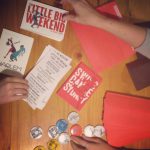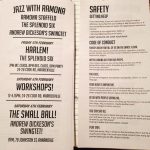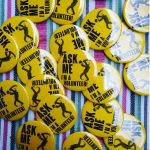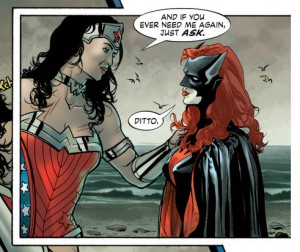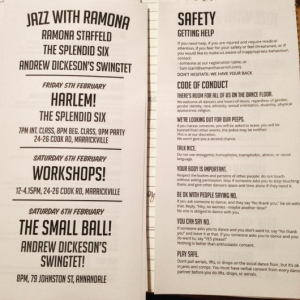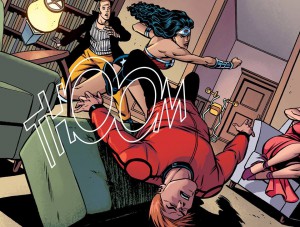Andy Reid recently wrote this on fb:
Lindy Hoppers: Many of you came to the dance and found a comfortable space where you could spread your wings. You found a place where you could be geeky, nerdy, techy, punky, introverted, extroverted, or whatever. You could be any of those things feel like you belonged. For many of us, we wouldn’t be the people you are now if we hadn’t found a place like this were we could be boldly ourselves. Beautiful, isn’t it?
This is NOT the experience for everyone who comes to this dance. In this case, this is not the experience of many LGTBQIA+ who have come across this dance scene. We are pushing people away. It takes courage to be “out” in this scene. Some utopia.
In the past few years, the illusion that our dance scene is a place free from the dangers of the real world has been shattered. As a result, we’ve done a lot to listen, learn and are making worthwhile changes. Also, we took our heads out of our asses. We can be proud of that. It’s beyond time to do the same here and realize that this haven that we found, is absolutely not a haven for everyone. We have to realize this and change, just like we shown ourselves capable of doing.
We need to open the doors – fucking wide. We need to shout “I see you. You are not invisible. You are welcome here”… just like others did for us. If (part of that) that means we make gestural changes like changing names of cheesily named dance contests, go for it.
But, far beyond that, I suggest you to take a moment to lightly and politely ask someone different from you about their experience in the scene. If they feel like sharing, you’ll learn something. If you think you don’t know any LGTBQIA+ folks in your local scene, either you are wrong and they are hiding (that speaks volumes) or your scene is tragically homogenous (also speaks volumes).
In the comments, I will be posting statements from different LGTBQIA+ people in our dance scene. Straight (and straight-ish) friends, before discussing this with your other straight (and straight-ish) friends, read some of these – including the comments, some of which are profound – no joke.
It takes effort to try to see the world through other people’s eyes, but it is immensely worthwhile.
This is what I started writing in reply, but didn’t leave on fb:
Nice vibes, Andy. And I dig your post.
Here is my rant.
I’d probably rethink the pronouns, because your call does not rework the status quo or question power:”We need to shout “I see you. You are not invisible.”
As though it is only through being recognised by the straight white male gaze that the other becomes real.
The lindy hop ‘we’ already includes peeps who aren’t straight, white guys. The lindy hop ‘we’ is already queer, black, trans…. everything _as well as_ straight white men. The LGTBQIA+ folk in our scenes ARE ALREADY SPEAKING. Maybe the straight white masculine world of lindy hop should _stop_ speaking for a second.
I’m also a bit suspect about “politely ask someone different from you about their experience in the scene.” Are we outing people now? This ‘asking’ is still an act of managing the public discourse. Why is it everyone else’s responsibility to educate the straight white man? Why is it everyone else’s responsibility to make sure the straight white man is looked after? AGAIN?
Maybe you should be quiet and listen and watch for a while instead. Because WE ARE ALREADY SPEAKING. Maybe you should watch for a while, before asking. See when a man gropes a woman on the dance floor, then tell him to quit. Hear when a straight man makes a bullshit gay joke, then _not laugh_.
So perhaps your call should be, “Hey, straight white guys. We’re the numerical minority in this community. So we should ask why we hold the majority of positions of power and influence. Maybe we should cede our place to the rest of the community. Also it’s time for us to stop talking.”
The lindy hop world is not that special or unique: it is within and a part of the wider community in which it lives. Of course sexism and homophobia and racism are here. Because it is in our wider lives as well.
This is how this will have to work: the most powerful people in our communities will need to give up some of that power. That includes the power to ask questions and speak. And they’re not going to be too happy about that.
I’ve also been struck by some of the comments like this from (straight white male) dancers: “In the past few years, the illusion that our dance scene is a place free from the dangers of the real world has been shattered.”
I was especially struck by the recent ep of the Track where Gordon Webster spent quite a bit of time telling us how shocked he was by the Steven Mitchell issue. He recounted some heart warming stories about the safety of the dance scene, and how surprised he was to discover that things Have Changed.
And I got really really angry. YES POWERFUL WHITE GUY, THE WORLD IS A PRETTY SAFE AND LOVELY PLACE FOR YOU. Your being able to leave your envelope of cash unattended, and without any accountability IS A MARKER OF YOUR POWER. Your being able to set aside the responsibility of paying your staff before you go off and get on stage IS A MARKER OF YOUR POWER. Your leaving the door staff to sell your CDs and make change from your band’s pay IS A MARKER OF YOUR POWER.
It wasn’t because ‘the scene is a utopia’ that that envelope of cash didn’t go missing. It’s because you are a powerful, influential person. And it’s good to be king.
I was especially angry about his reluctance to believe that HIS friend could possibly be dodgy as fuck. When even I, who’d only met Mitchell once or twice and live in another hemisphere, could tell he was a pain in the arse and well dodgy. He didn’t see the problems with Mitchell, because they didn’t affect him directly. He WASN’T LOOKING FOR THEM.
The rest of the dance world (who aren’t straight, white, or male) were already quite sure that the dance world wasn’t a utopia.
News at 5: ‘white man discovers his experience of the world is not universal.’
Because the women, POC… pretty much most of the peeps who aren’t representing hegemonic masculinity in our scene know that it’s not a utopia. And we’ve always known that. And we’ve been talking about it for years. Hell, even Norma Miller’s been shouting it at people for years, and not even she’s been listened to!

